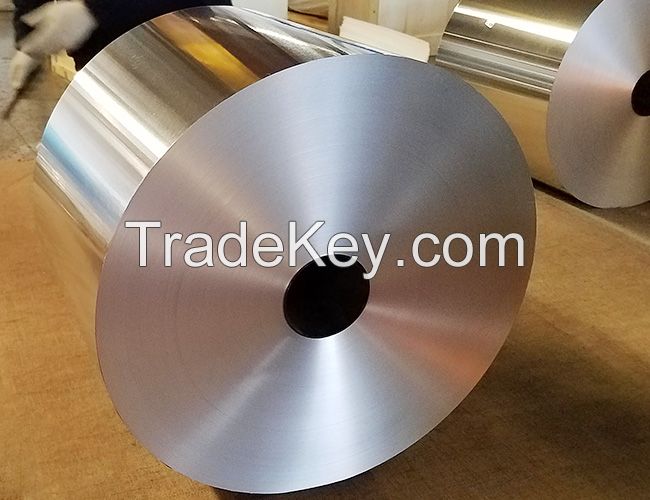Description
Battery foil is essentially an aluminum foil
material used for batteries. It is a new type of composite aluminum
foil material used as a current collector for lithium-ion
batteries. Today, battery aluminum foil has gradually replaced
traditional battery copper foil and has the advantages of
electrical conductivity, thermal conductivity, corrosion
resistance, strong ductility, and long service life. As we all
know, batteries are hundreds of years old. After continuous updates
and iterations, the wide range of applications from nickel-zinc
batteries, lead-acid batteries, lithium-ion batteries to soft-pack
batteries have made use safer and more convenient. Therefore, the
indispensable battery foil plays a key role in the battery
industry.
Rolled foil thickness varies from *0 to *0 microns. Commonly used
pure aluminum foils for lithium batteries include various alloy
grades such as ***0, ***0, ***5, ***5, and ***1, and are available
in -O, H*4, -H*4, -H*2, -H*8 and other states.
Specification:
| Alloy |
***5,***5,***0,***0,***1,etc |
| Temper |
H*8 |
| Thickness |
0.****0.2mm |
| Width |
*******0mm |
| Tensile strength |
≥**0N/mm |
| Elongation |
≥1% |
Battery aluminum foil performance
characteristics:
1. Electrochemical properties: It has good electrical conductivity
and is adaptable to different working environments and temperature
conditions.
2. Mechanical properties: It has good ductility and processability,
and is easy to stamp, stretch, etc. Stable mechanical performance,
safe and reliable.
3. Corrosion resistance and oxidation resistance: A dense oxide
film forms on the surface of the aluminum foil to prevent the
intrusion of oxygen, moisture and other substances.
